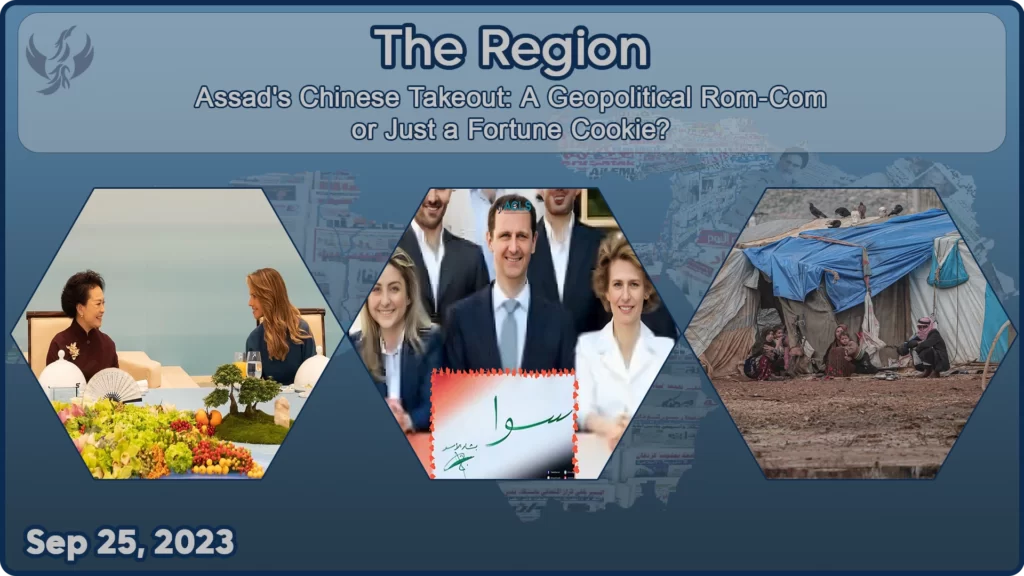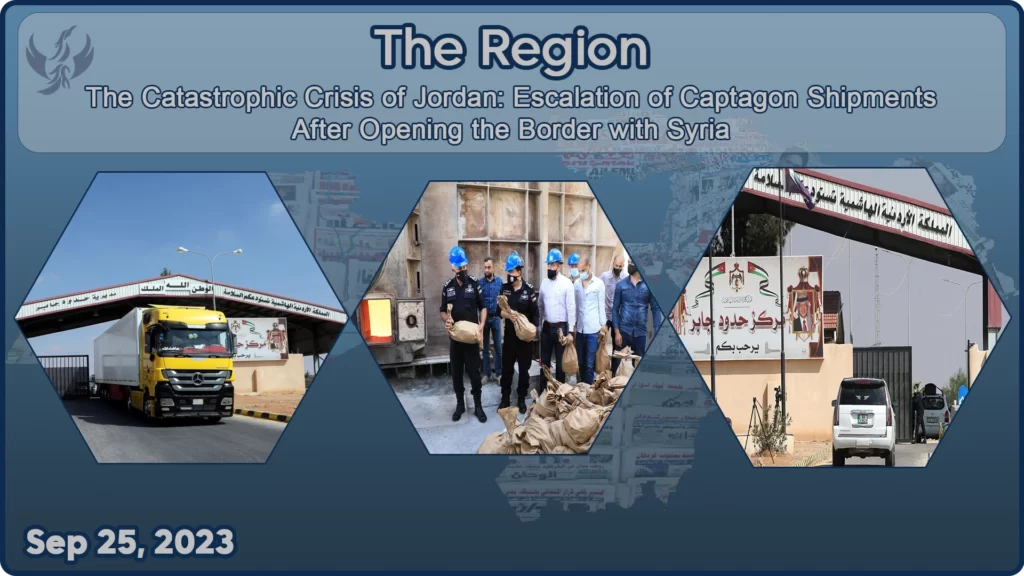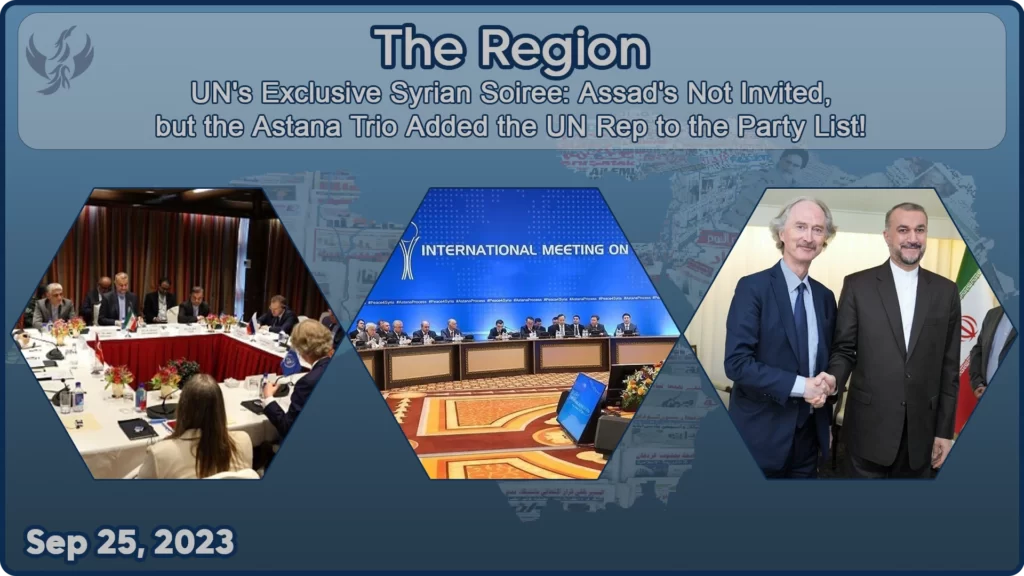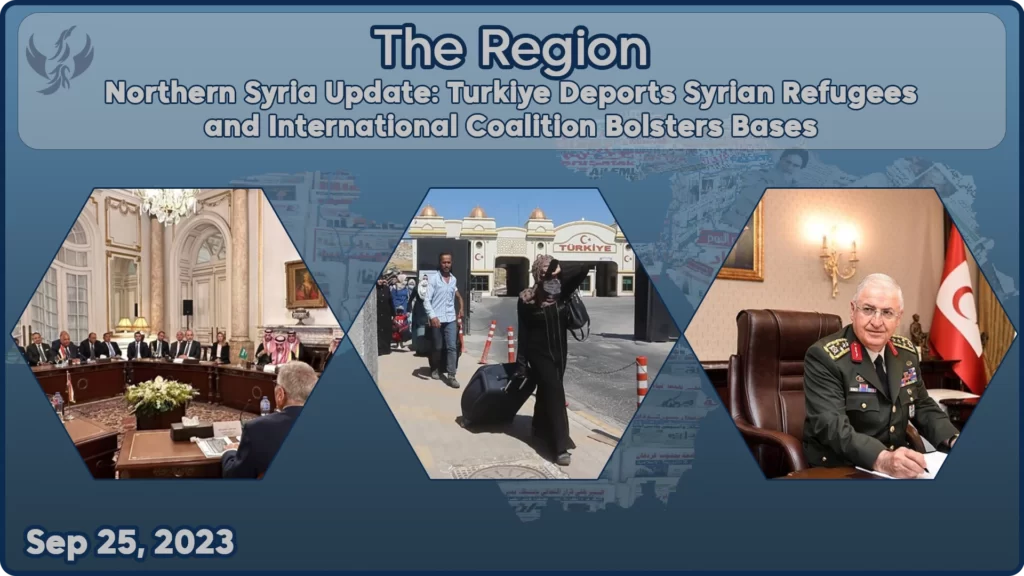By: Rania Kisar
September 25, 2023
★ Assad’s Chinese Takeout: Rebuilding Syria or Just a Fortune Cookie?

In a move that screams geopolitical rom-com, Bashar al-Assad jetted off to China to meet his “strategic partner,” President Xi Jinping. The duo didn’t just exchange pleasantries; they inked three—count ’em, three—documents! One for economic cooperation, another for a joint memorandum on economic development, and a third for the “Belt and Road” initiative. Xi Jinping hailed it as a “pivotal event,” as if they were renewing their vows (Nikkei Asia), while a U.S. National Security Council official was quick to say,as long as U.S. sanctions are in the mix, Assad’s grand plans are about as promising as a stale fortune cookie (Alsouria). To add insult to injury, the U.S. Congress labeled Assad a “savage war criminal” (Syria TV).
Xi Jinping rolled out the red carpet—literally—by sending a special presidential plane for Assad’s first official China visit since 2004 (Syria TV). Meanwhile, Asma al-Assad, turned the trip into an Instagram influencer bonanza. She posted videos of temple visits and lunch with Xi, all while 90% of Syrians are scraping by below the poverty line.
Back in Syria, protests are in their sixth week, and the UN is sounding the alarm on healthcare and humanitarian aid. But hey, Asma attended her son’s graduation in Moscow last June, so clearly, they’re living their best lives, blissfully detached from Syrian reality (Enab Baladi).
Let’s not forget, China has been Team Assad since 2011, acting as the diplomatic wingman and vetoing UN resolutions to keep their buddy Assad in the clear. This isn’t just a fling; it’s part of China’s geopolitical love triangle, featuring Russia and Iran, who are also giving Assad the right swipe (Enab Baladi).
=====================================================
★ Jordan’s Costly Mistake: The Surge in Captagon Shipments Since Reopening Syrian Border

In September 2021, Jordan made the fateful decision to reopen the Nasib Border Crossing with the Assad regime. This move, strongly advocated by Jordan’s Foreign Affairs Minister, was aimed at normalizing relations with the Assad regime. However, the decision has had dire consequences, most notably a significant surge in Captagon shipments into Jordan.
This report serves as a stark reminder of the complexities and risks involved in geopolitics and drug trade. King Abdullah’s recent statement questioning whether Syrian President Bashar al-Assad is in full control of his country not only comes too late but also raises serious concerns for the future of Jordan, especially given its concurrent and questionable decisions regarding Assad.
The Regional Drug Landscape
Saudi Arabia, a major player in the region, has reported a dramatic rise in amphetamine seizures, escalating from 18 tonnes in 2016 to an astonishing 73 tonnes in 2021. In the first half of 2022, over 100 million Captagon pills were intercepted by regional states. While this may suggest a decrease compared to 2021, the figures are misleading. The drop in seizures in Lebanon and Turkiye was counterbalanced by a significant increase in Jordan and Iraq, both of which have become crucial transit routes to the Gulf (Alhurra). On September 13, 2023, the United Arab Emirates thwarted an attempt to smuggle over 80 million Captagon tablets into the country, carrying a market value of €700 million (Politico & DW).
Europe as a Transit Hub
Recent reports from Politico and Deutsche Welle (DW) have highlighted Europe’s role as a key transit hub for Captagon. A day later, the European Monitoring Centre for Drugs and Drug Addiction (EMCDDA) released a report stating that Europe had become a pivotal transshipment point for Captagon. Approximately 127 million tablets and an additional 1,773 kilograms (equivalent to 10.6 million tablets) were seized in European countries (EMCDDA Report). Dutch authorities have even reported discovering one or two large production sites for Captagon tablets on their territory every year.
The Key Players and Their Adaptations
The Assad regime and Hezbollah, the most pivotal actors in the drug trade, have adapted to their limited direct control in southern Syria. They have converted this disadvantage into influence and profit through diverse local narcotics networks. This adaptation allows them to maintain a grip on the drug trade, even in areas where their control is not absolute (COAR).
Jordan’s Crisis
On September 5, 2023, the Jordanian army intercepted a drone carrying crystal meth from Syria, highlighting another instance of narcotics smuggling along the country’s northern border (Al Jazeera). In response to this ‘major problem’ of drug and weapon smuggling into Jordan, King Abdullah II made a statement (Al-Monitor/Semafor Event). Just three days later, Jordanian Foreign Minister Ayman Safadi sought assistance from Iran’s foreign minister to address the smuggling crisis. The photograph from their meeting vividly illustrates the gravity of the situation.
The surge in Captagon shipments into Jordan is part of a larger regional narcotics issue, involving key players like the Assad regime and Hezbollah. Saudi Arabia’s rising drug confiscations and Europe’s role as a transit hub add layers to this complex problem. Jordan is at a critical juncture. Recent statements from King Abdullah and Foreign Minister Ayman Safadi signal a late realization of the issue’s severity, prompting questions about the country’s future policies. As Jordan faces these challenges, it must reevaluate its past decisions and alliances, given the high stakes for national security and regional stability.
=====================================================
★ UN’s Exclusive Syrian Soiree: Assad’s Not Invited, but the Astana Trio Added the UN Rep to the Party List!

In a series of meetings held on the sidelines of the 78th United Nations General Assembly in New York, foreign ministers from Russia, Iran, and Turkey convened to discuss the Syrian crisis without the presence of representatives from the Syrian regime or opposition (The New Arab). The meetings, dubbed the “Astana Formula,” focused on ensuring stability in Syria while respecting its sovereignty and territorial integrity. The ministers also discussed the need for international aid for Syria’s reconstruction and the return of Syrian refugees (Syrian Observatory for Human Rights).
Separately, Iran’s Foreign Minister, Hossein Amir Abdollahian, announced Iran’s support for initiatives aimed at facilitating the return of Syrian refugees. He also discussed the economic challenges in Syria and called for UN assistance in various areas, including counterterrorism and humanitarian aid (Tasnim Agency).
=====================================================
★ Northern Syria Update: Turkiye Deports Syrian Refugees and International Coalition Bolsters Bases

In a series of recent developments, Turkish authorities have deported approximately 600 Syrian refugees, including women and children, through northern Syria’s Tal Abyad and Bab al-Hawa crossings. These deportees were handed over to armed factions loyal to Turkiye (NPA Syria). This move coincides with Turkish Defense Minister Yaşar Guler’s statement that Turkiye would be willing to withdraw its forces from Syria under specific conditions. These conditions include the creation of a new Syrian constitution, the holding of elections, and the formation of an inclusive government (Nabd).
Simultaneously, the International Coalition has been fortifying its bases in northeastern Syria, bringing in 37 trucks loaded with military and logistical materials (Syrian HR). This military reinforcement occurs as American economic sanctions against the Syrian regime have led to a cessation of meetings by the Arab Liaison Committee on Syria (Syria TV). The committee had been exploring ways to reintegrate Syria into the Arab world, but U.S. measures have effectively put these discussions on hold.



